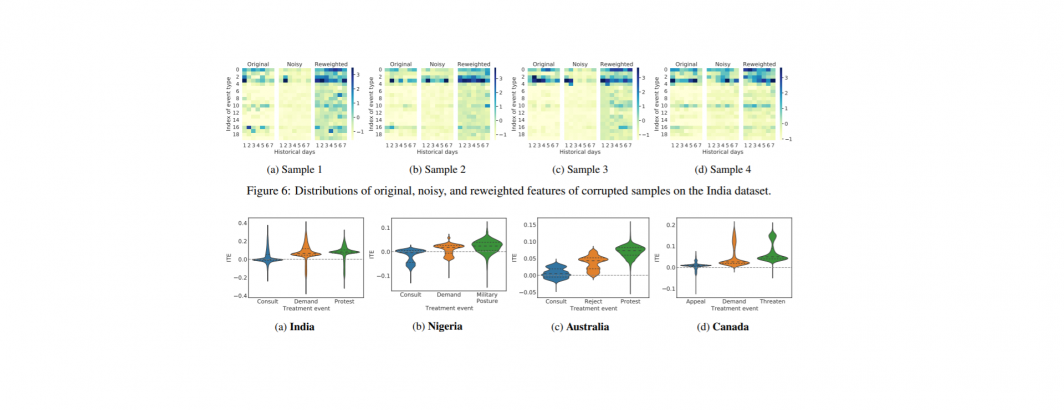
Data-driven societal event forecasting methods exploit relevant historical information to predict future events. These methods rely on historical labeled data and cannot accurately predict events when data are limited or of poor quality. Studying causal effects between events goes beyond correlation analysis and can contribute to a more robust prediction of events. However, incorporating causality analysis in data-driven event forecasting is challenging due to several factors: (i) Events occur in a complex and dynamic social environment. Many unobserved variables, i.e., hidden confounders, affect both potential causes and outcomes. (ii) Given spatiotemporal non-independent and identically distributed (non-IID) data, modeling hidden confounders for accurate causal effect estimation is not trivial. In this work, we introduce a deep learning framework that integrates causal effect estimation into event forecasting. We first study the problem of Individual Treatment Effect (ITE) estimation from observational event data with spatiotemporal attributes and present a novel causal inference model to estimate ITEs. We then incorporate the learned event-related causal information into event prediction as prior knowledge. Two robust learning modules, including a feature reweighting module and an approximate constraint loss, are introduced to enable prior knowledge injection. We evaluate the proposed causal inference model on real-world event datasets and validate the effectiveness of proposed robust learning modules in event prediction by feeding learned causal information into different deep learning methods. Experimental results demonstrate the strengths of the proposed causal inference model for ITE estimation in societal events and showcase the beneficial properties of robust learning modules in societal event forecasting.